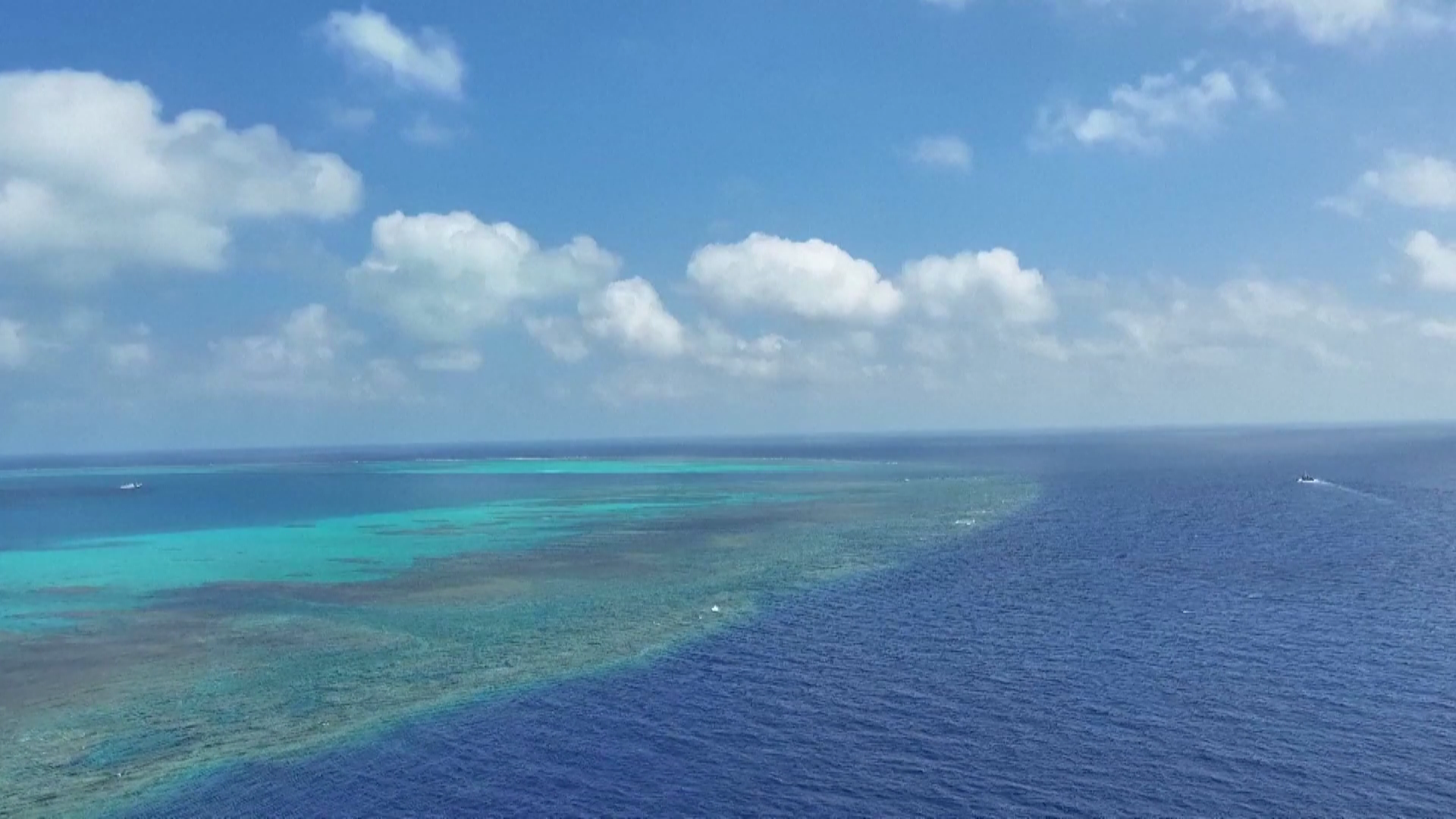China releases report on ecological environment of Huangyan Dao waters
November 27, 2025
The Ministry of Ecology and Environment on Friday released the 2025 survey and assessment report on the ecological environment of the waters around Huangyan Dao in the South China Sea.

A view of Huangyan Dao waters, south China. /VCG
A view of Huangyan Dao waters, south China. /VCG
According to the report, the waters around Huangyan Dao maintain good quality. Seawater and marine sediments both met Class I standards, while concentrations of pollutants such as heavy metals and petroleum hydrocarbons in fish samples remain below evaluation thresholds. No cyanide is detected in seawater, sediments or fish samples.
The report notes that the coral reef ecosystem of Huangyan Dao remains healthy and stable. On-site surveys documented 134 species of reef-building corals from 14 families – 25 more than recorded in the 2024 survey. The average live coral cover reached 29.8 percent. Coral communities also show strong resistance and tolerance to rising sea temperatures. Reef-dwelling biodiversity is rich, with surveys recording 145 species of reef fish from 24 families, an increase of 20 species from 2024. Three species of giant clams were found, together with crustose coralline algae, blue coral, soft corals and sea lilies. No phase shift from corals to macroalgae was observed, and no coral diseases were detected. Numbers of Acanthaster and other harmful organisms remain low. Surveys also found three species of seagrass inside the lagoon: Halophila ovalis, Halophila minor and Halodule uninervis.
The report concludes that the natural ecosystems of Huangyan Dao are diverse, stable and resilient. They provide important habitats and refuges for marine life in the South China Sea and serve as valuable natural archives for documenting global climate change and environmental evolution. At the same time, as climate change accelerates, the coral reefs of Huangyan Dao are facing increasing heat stress, and the potential risk of coral bleaching cannot be ignored.
(Cover: A view of Huangyan Dao waters, south China. /VCG)
Search
RECENT PRESS RELEASES
Related Post
